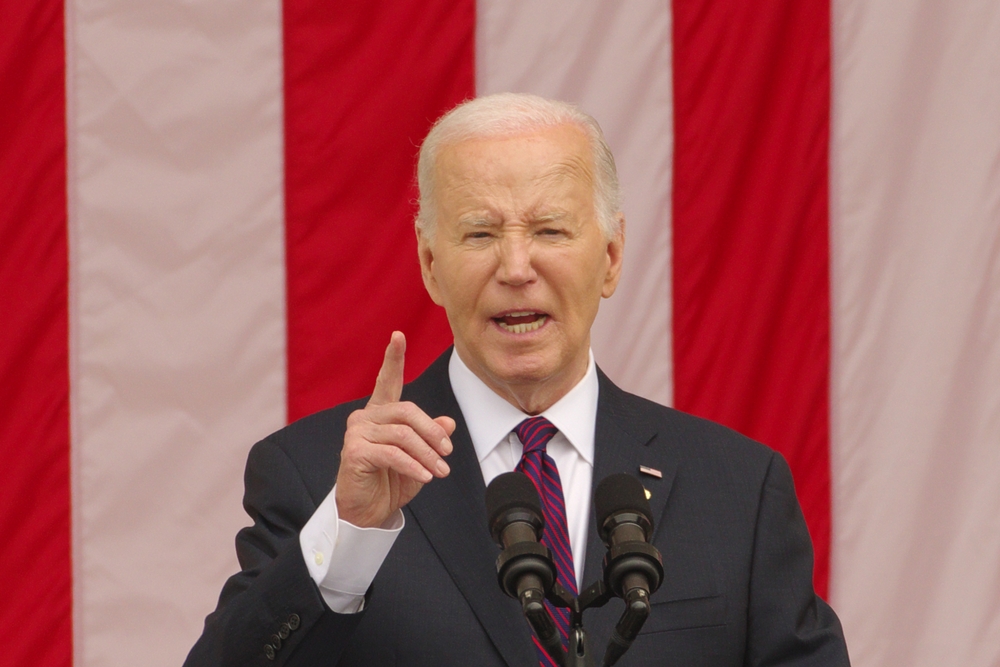China has garnered much attention given its position as a major economic competitor to the United States, and specifically as a competitor in telecommunications, technology and innovation. The national security implications for the use of Chinese technology have also caught the attention of policy-makers, for over a decade.
In 2012 the House of Representatives Intelligence Committee released the “Investigative Report on the U.S. National Security Issues Posed by Chinese Telecommunications Companies Huawei and ZTE.” The public portion of the report found that “the risks associated with Huawei’s and ZTE’s provision of equipment to U.S. critical infrastructure could undermine core U.S. national-security interests.”
Eventually, in 2021, the Federal Communications Commission (FCC) finalized a program to pay telecom providers to tear out and replace equipment from Chinese telecom companies considered a national security risk by the U.S. government. Additionally, the Biden administration has on a couple occasions added specific Chinese technology companies to its “Entity List,” restricting U.S. firms from dealing with the companies listed.
But, China’s digital aspirations are far from ended.
As part of its intention to create a China-centered digital future, the country continues its “Digital Silk Road” initiative to emplace next generation digital connectivity abroad and by doing so to extend its technological influence, pushing itself closer to becoming a technological superpower. The ambition is even greater though, wrapping global financial markets into this plan.
In the midst of this global development Congress seems willing to allow the U.S.’s current innovation edge and global connected world leadership falter. Congress allowed the FCC’s auction authority to lapse, authority it has had since 1993. A critical piece for the continued U.S. edge is 5G, the next generation of global advanced wireless telecommunications, and without more spectrum 5G will stand still. Much is on the line as Congress allows our spectrum pipeline to dwindle.
Contrast the Congressional auction authority approval balk with China, which has greatly padded its lead on the United States by opening huge swaths of its spectrum for licensed mobile use. The obvious Chinese intent is to move ahead not just in 5G, but also in creating an environment for the development of the types of cutting-edge technologies that depend on such high-performance connectivity.
The Congressionally imposed U.S. spectrum shortage will hinder technological innovation and clear the path for China to assert global leadership in the connected future, threatening the economic and national security of the United States. If the United States is not competitive in needed advanced technologies, other countries will have no alternative to the Digital Silk Road. Thereby Beijing will gain the upper hand when it comes to setting standards for 5G networking, the internet, and perhaps even digital governance and ethics.
The economic effect on the country of surrendering its long-held technological leadership can hardly be overstated. The national security risks interrelate with the economic risks. As CSIS writes in its recent report, “This is a potential long-term national security catastrophe.”
Without leadership, and hard work, our economy and the provision of good middle-class careers would be at risk, not to mention our ability to project economic and military power around the world.
Congress has the choice before it when they return from their August recess. They must choose either to stand by and allow The Digital Silk Road to continue its rapid build out without a competitor, or to make it a priority to renew the FCC’s auction authority, giving the U.S. Information Superhighway its best chance of continuing to lead on the world stage. As the Chinese proverb goes, “If you work hard enough at it, you can grind even an iron rod down to a needle.” That is, anything is possible if you are willing to put in the work.

Broadband Providers and a Smart FCC: Keep Us Connected While We Stay Distant
"Particularly over the last decade, much has been said about “innovation.” Many have commented on how to create an environment to inspire it, to manage it or benefit from it. In fact, so much has been said that unfortunately many people tune it out. This has happened...

Will 5G get 6GHz?
Will 5G Get 6GHz? Last year was a great year for consumers, business and the FCC as much needed licensed spectrum was auctioned or put in the spectrum pipeline, and critical decisions were made by the FCC related to opening up C-band and 5.9 GHz slices of spectrum for...

CBRS is a spectrum innovation worth defending
Citizens Broadband Radio Service, or CBRS for short, sounds like another buzzy acronym from Washington, but don’t be fooled. The CBRS is one of the most successful free market, principled telecom policies of which you’ve never heard. It’s a prime...

IEI Public Comments to the FCC On Authorizing Permissive Use of the “Next Generation” Broadcast Television Standard
Click Here to Read the Full Comments

IEA Signs Coalition Letter on the 6Ghz Band
Click Here to Read the Full Letter

IEA Joins Coalition Urging the Removal of 3.5 GHz CBRS band from the General Spectrum Auction Authority
Click Here To Read The Full Letter

Congress Can Unleash a New Era of Innovation
The reconciliation bill Congressional Republicans are currently drafting could be more than just a fulfillment of President Trump’s promises to extend tax cuts and cut spending. Congress also has the opportunity to unleash a new era of American...

IEI Joins Coalition Against C-SALT
Click here to read the full letter

Policymakers — Don’t Forget WiFi!
As the goals and priorities of this new Congress and Federal Communications Commission (FCC) become more apparent, policymakers would be wise to prominently feature voters’ call for public policies that promote innovation, deregulation, affordability, and economic...

IEA Joins Coalition Supporting Preservation of 3.5 GHz Citizens Broadband Radio Service (“CBRS”) Band
Click Here to Read the Full Letter

IEI Joins Coalition Requesting Dismissal of FCC CBS CAR Complaint
Click here to read the full letter

A Lavish Holiday Season for the Favored Programs of Government
With a month to go, and only a week or so until Christmas, the Biden administration is checking its winners and losers list, and delivering cash packages as fast as it can. Welcome to the season of Bidenomics at the speed of Donner and Blitzen. Bidenomics was peddled...

Recent Comments